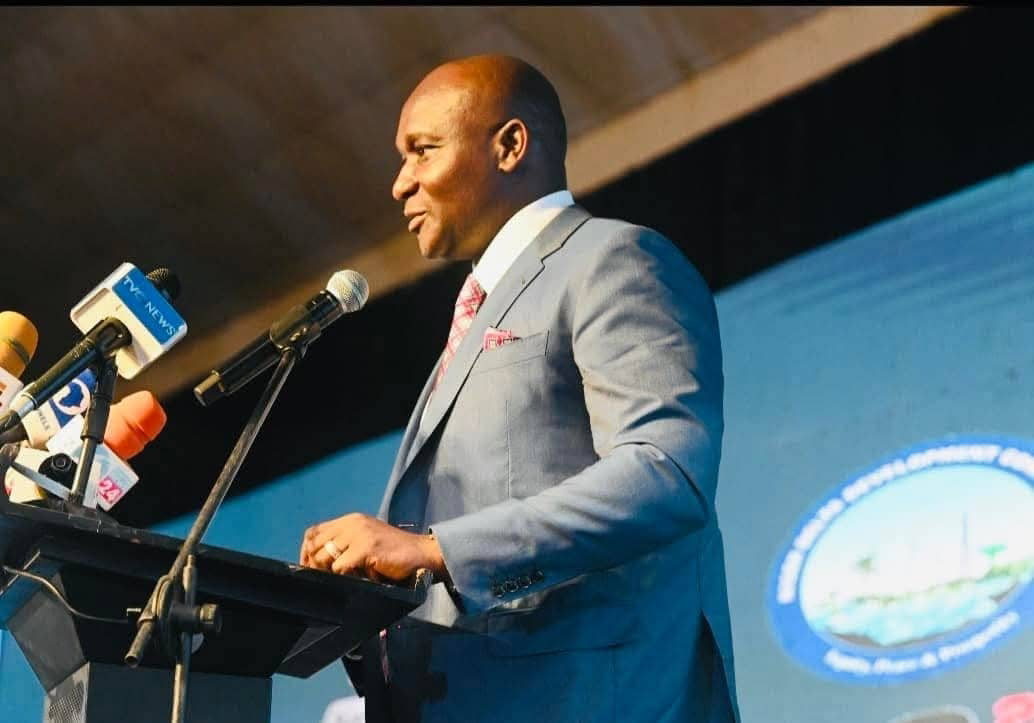By Etete Enideneze
Thank you for reading this post, don't forget to subscribe!Federal Government’s policies on polytechnics, monotechnics and the diplomas awarded, have continued to fuel discrimination against the institutions and the large number of graduates they turn out annually.

A new policy directive requiring HND graduates to present certificate of one-year Industrial Training (IT) before deployment for the mandatory National Youth Service Corps (NYSC) scheme, with effect from this year, further fuels the discrimination.
This requirement, which does not apply to university and colleges of education graduates, has put HND graduates in another trouble. Already, holders of HND, who were due for deployment in the NYSC Batch ‘B’ Stream 2 were in a fix.
The affected holders of HND pleaded for reversal of the policy. They argued that it was not their duty to issue IT Certificate to themselves, neither was it their role to enforce IT as a criterion for admission into HND programme or enforcement of the training while they undertook the programme, but the duty of their institutions.
The Federal Government says industrial training has been a part of polytechnic and monotechnic curriculum, but that, it was sometimes not enforced, or it was evaded by some institutions and students. Hence, the government enforced the new requirement of IT certification for deployment to NYSC scheme.
Aside the proposed one-year IT policy, there are others considered discrimatory and frustrating, as well.
One of them, also recent, is the policy of OND and HND holders writing Direct Entry Joint Admission Matriculation Board (JAMB) examination, for entry into university first degree programmes.
Others are placement on Grade Level 7; non-acceptance of Postgraduate Diploma (PGD) for conversion to another cadre and or upgrading to progress beyond Grade Level 14 in the Civil Service, to become director and head departments.
The arguments for these policies are premised on the distinct goal and technical nature of polytechnic education, lesser theoretical content, fewer courses, low cut-off point for entry and not having professors, unlike in universities.
Another reason often cited is that polytechnics and monotechnics veered from technical and technological labor development purpose, to offer humanities, social sciences and administration programmes.
Indeed, this tends to defeat the essence of polytechnic education, to an extent, as they now produce graduates loaded more with theoretical background, and less practical skills.
However, Federal and State Government’s may not have also provided enough funds and state-of-the art facilities to enable such institutions produce the desired competent manpower.
Thus, many stakeholders have severally called for adequate funding, and upradgradating of standard polytechnics and monotechnics to technical and technology-degree focused varsities, for better service delivery.
But these ideas are yet to be adopted; instead, the Federal Government, state governments and private persons are establishing more tertiary institutions, including polytechnics and minotechnics.
Despite the discrimination, some Nigerians, including employees, lecturers as well as polytec graduates, contend that OND and HND holders are competent and some of them could sometimes perform practical tasks better than some university degree holders. Some bachelor’s degree holders tend to share this view, too, while others rebuf it.
Nonetheless, some first degree university graduates are rather going for professional diploma and or professional master’s degree to step up their skills for labour market requirements, or for self-reliance ventures.
As the disparity raged, and still rages, the Ninth National Assembly passed a bill in 2021, to remove the dichotomy between HND holders and degree holders, especially in the federal and state civil service.
However, former President Muhammadu Buhari did not accent, despite having signed many bills in the twilight of his administration, and the hopes of HND holders were dashed.
Former President Okusegun Obasanjo had also during his tenure, directed the Federal Civil Service to abolish the dichotomy between HND and degree, for progression, but the directive was not implemented.
Alternatively, the Federal Civil Service endorsed a one-year HND-to-degree conversion programme ran in universities, as a requirement for HND holders to convert to other cadres, such as administration and engineering, and progress to be directors and heads of departments in public service.
Introduced by the National Business and Technical Education Board (NABTEB), the HND conversion programme is also designed to ease admission into postgraduate programmes in universities, another aspect in which HND holders face obstacles.
However, the HND-to-degree conversion window seen by HND graduates, as a leeway to escape the barriers, has also attracted controversies. The National Universities Commission (NUC) and NABTEB have argued over accreditation and regulatory control. The role conflict also concerns the poser, whether it is the mandate of universities to run the HND conversation programme, instead of postgraduate diploma programme.
The NUC and NABTEB also dispute over whether universities ought to run ordinary diploma programmes, often in the guise of professional programmes, mostly in special study centers within and outside varsity campuses.
The current administration under President Bola Ahmed Tinubu, seems to be taking a holistic approach. It wants to set up a polytechnic and monotechnic commission, separate from the existing Collwges of Education and Polytechnics/Minotechnics Commission. This is to streamline policy formulation, implementation and regulation of polytec education.
Indeed, most of the earlier mentioned policies make polytechnics, their products, present and prospective students to be mere targets of discrimination and unending frustration in their educational and work careers.
The developments seem to portray lack of clear policy direction and cohesion, besides relegating the usefulness of polytechnic education and its products to Nigeria’s economy..
Ironically, this is despite the huge funds spent to establish and run the institutions, producing thousands of young OND and HND holders, annually.
The scenario of discrimination tends to amount to waste of funds and the specialized work force trained for self-reliance, and employment, to drive the nation’s economy.
Therefore, the Federal Government should revisit the bill passed by the Ninth Assembly and sign it into law; ensure adherence to labour laws and amend sections/clauses likely affecting HND graduates; amend civil service rules/scheme of service to remove the barriers; provide special employment and designations, and pay them special allowances, for specialized roles. Craft, technology and industrial centers could also be established in various parts of the country to enable polytec graduates ply their trades.
Government should accept university Postgraduate Diploma as requirement for upgrading of HND graduates to director’s grade; recognise use of professional certification from relevant chartered institutes, for same purposes, and allow them to head technical, technological, works and maintenance departments/units.
Government should also adequately fund the Industrial Training Fund (ITF), to make it more effective and increase the allowance for trainees; convert standard polytechnics to degree awarding institutions that would offer integrated skills and more core as well as elective theoretical courses; recruit professors; increase entry cut-off point; offer short-duration skills-based programmes and improve funds and facilities in polytecs.
In that regard, a multi-sectoral stakeholders forum is necessary, to effectively put an end to the lingering problems facing polytechnic, monotechnic education and the graduates.
That way, public and private sectors as well as OND and HND graduates, could best tap the economic benefits of the specialized educational institutions, if Nigeria really wishes to advance its economy through technical manpower and manufacturing.
*Etete Enideneze, Journalist/Public Relations professional, wrote and contributed this article from Yenagoa.
Kindly share





